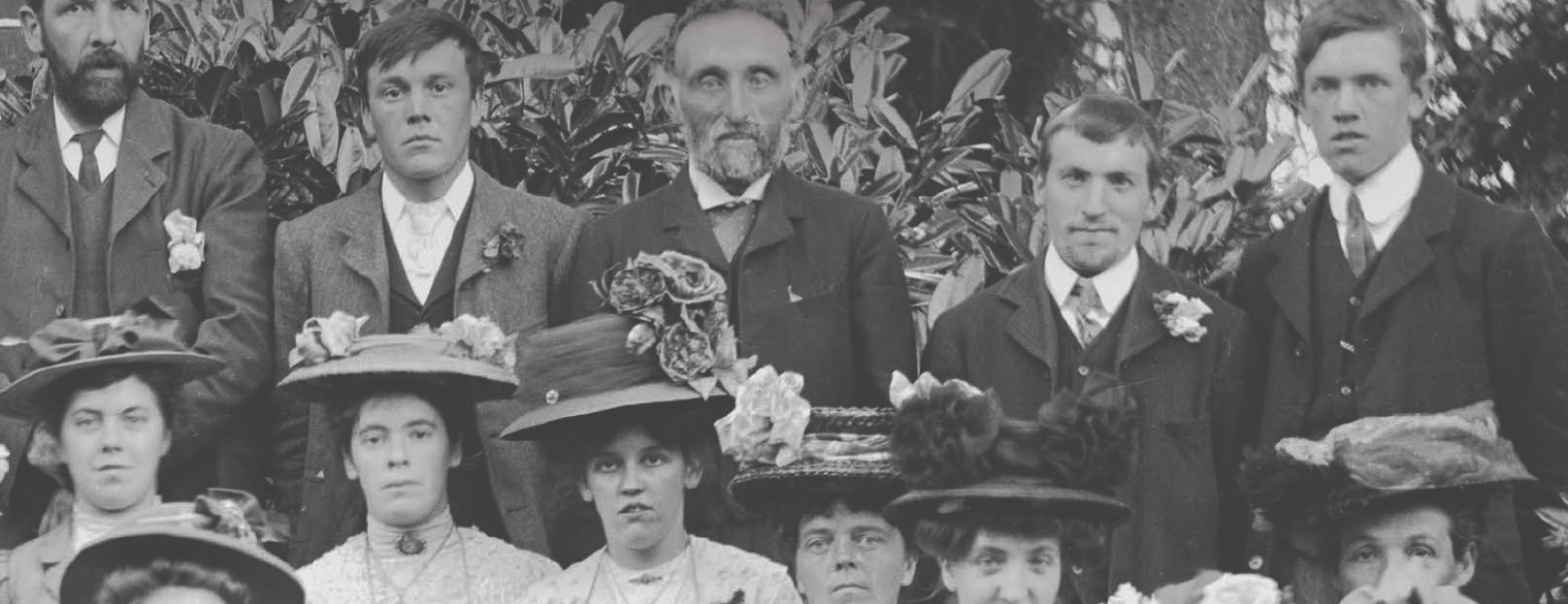
Russell Davies introduces his new book, Sex, Sects and Society: ‘Pain and Pleasure’: A Social History of Wales and the Welsh, 1870-1945
Despite the hardship and hardscrabble existences endured by many, over the period 1870–1945 the life expectancy of the Welsh people doubled. The fact that death had lost the frightening immanency, which it had in the mid-nineteenth century, had profound implications for people’s beliefs. Apparitions, with and without a biblical pedigree, were frequently seen. Jesus, Mary, and the Holy Ghost materialised at the same time as ghosts, ghouls and things that went bump in the night, for the forces of Light and Darkness seemed to be having a rare old battle in Wales in the years 1870–1945. But over the period, belief in both religion and superstition declined significantly.
Sensibilities and sensitivities changed as an increasing emphasis was placed on the pursuit of pleasure. Though many commentators have accepted the views of contemporaries that the apparent absence of evidence was evidence of absence, these years saw a sexual revolution in Wales. The joys of sex were propounded in cinemas, literature, photography and the theatre. Dr Ernest Jones, Freud’s biographer and the greatest explicator of his ideas, took his master’s views further in emphasising the importance of the sexual satisfaction of women. Jones complained that even after Freud, sexuality was still too phallocentric. The clitoris, he argued, had an important part to play – people just needed to find it. Of all the stepping stones in the long march of female emancipation, this surely is one of the most important.
The years between 1870 and 1945 saw remarkable change. Fundamental to most developments was electricity, which produced the greatest environmental revolution in human history since the domestication of fire. During this first multi-media age, an age of ‘electric culture’, the workshop of the world turned into a dream factory. This was the age of technological entertainment, when the cinema, the radiogram, the wireless, the radio, the bicycle and the motor car, and many more devices were invented. This was the age when the ‘leisure industry’ and the ‘creative industries’ came into existence, when sport became as much a force in the economy as a feature in entertainment. These years saw the feminisation of leisure as in the cinema, music hall and theatre, women dominated as actors and in audiences.
Two Welshmen were influential in creating this brave new world. Sir William Henry Preece helped to create the phonograph, while David Hughes invented the microphone. The birth of recorded sound represented a profound shift in the nature of human existence, and it ranks with the representation of human speech and thought on papyrus, parchment or paper. No matter how crude its early manifestation, it provided people with the tunes of their years, the tracks of their tears. The invention of recorded sound transformed music from an experience into an artefact, with wide-ranging physical and psychological consequences. Irrespective of when music was made, it could still be heard. Performances were no longer unique, but could be repeated endlessly. There would be no more lost chords. An entire industry devoted to the making, selling and disseminating of recordings came into being. Shops sold sheet music of the greatest hits of the musicals, so that people who had never been out of Port Talbot could serenade themselves at home with “We’ll Always Have Paris”. The revolution in sensibility left its mark on whole areas of people’s lives.
It is with the emotional responses of the Welsh people to a period of unparalleled and unprecedented change that Sex, Sects and Society is engaged.
Russell Davies is a broadcaster and writer; he is the author of Secret Sins: Sex, Violence and Society in Carmarthenshire 1870–1920; Hope and Heartbreak: a Social History of Wales and the Welsh, 1776–1870, and People, Places and Passions: Pain and Pleasure, a Social History of Wales and the Welsh, 1870–1945.


